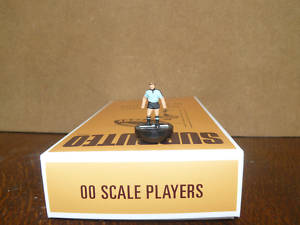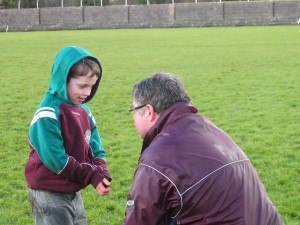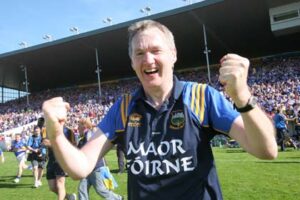 I have been involved coaching and managing teams since I was about eight years old. The first team I managed was Romania, followed by Bulgaria.
I have been involved coaching and managing teams since I was about eight years old. The first team I managed was Romania, followed by Bulgaria.
I took great interest in the teams’ tactics and how the players interacted with one another on the pitch. It was great to get this international experience at such a young age. I remember Santa Claus duly brought me a book about tactics when I was about ten. I never looked back.
It was easy enough to implement the formations and line outs onto the Subbuteo pitch. And in comparison to my later experiences with players, you didn’t really have to worry whether they understood what you were talking about or whether they could handle the nuances of the position. They were just slotted into a particular position on the green baize and told to play there.
One of the great frustrations was the lack of replays: brilliant goals were fleeting moments never to be repeated. I could easily get my team to score from frees the ball crashing through or over the wall but when the ball hit the net that was it. Sadly the world would never see these moments.
Occasionally there would be problems with injury. Sometime an adult would enter the living room and clumsily stand on the pitch sending the silky midfield playmaker into smithereens and a long period of rehab. A few players had their careers ended this way. It was as bad as the cruciate ligament tear in those days.
Often some teams lacked a player or two – on my pitch although Argentina had just won the World Cup they weren’t just as good. The reach of the ruling Junta didn’t extend to the Living Room stadium.
My strongest team was Uruguay, with a number 8 called Santelli. In the real world he was just another fairly anonymous attacking midfielder. But I was able to get the best out of him and I played him in a sort of attacking inside left role. He was a real handful and led my Uruguay team to numerous successes. It was a great example of man management.
My sister got me Peru for Christmas – for some reason she took a shine to them and their white strip with the red sash after the Argentina World Cup. They were good but lacked that little something extra.
I hunted down other teams. I had a grá for teams from behind the Iron Curtain but the manufacturers didn’t seem to share my enthusiasm. Maybe it was the cold war. I managed to get East Germany, in the real world they were for nothing but I turned them into world beaters. Using the tiny numbers and a few extra players I’d sourced I was able to make up a few tournament-sized squads and I tried to make sure everyone got a run out in a fashion the exponents of positive coaching would endorse wholeheartedly.
I searched for Haiti and Zaire but could never find them – I always fancied a shot at managing either team, I reckoned I could get the best out of them with a bit of organisation and tactical nous.
The players got loads of games. I organised a series of international tournaments. Some were run on a worldwide basis, others within Europe or South America. I recorded the scorers and the group stages meticulously. There was no danger of anyone querying a result.
I remember one particular momentous family occasion when my brother was involved in a heated discussion with my parents, my role was to keep the players focused on their match.
A few times using spare rods that formed part of the pitch side fencing we erected Gaelic posts and were able to run off an All Ireland series of sorts. My players weren’t happy with the unfamiliar rules and it died a bit of a death.
Picking teams. Formations. Tactics. How to counteract particular players. Dealing with success. And failure. It was great preparation.
I watch on now as my own sons play Football on their wii. They pick their own teams and set their stall out. They haven’t yet learned to park the bus. They are too focused on all out attack but they’ll learn.
The other day, I picked up a sheet of paper and saw that Leo had made out a rudimentary tournament. It brought a smile to my face.
I am proud to have managed players over a number of years with varying degrees of success and failure.
Perhaps in their own time, the boys will too.


